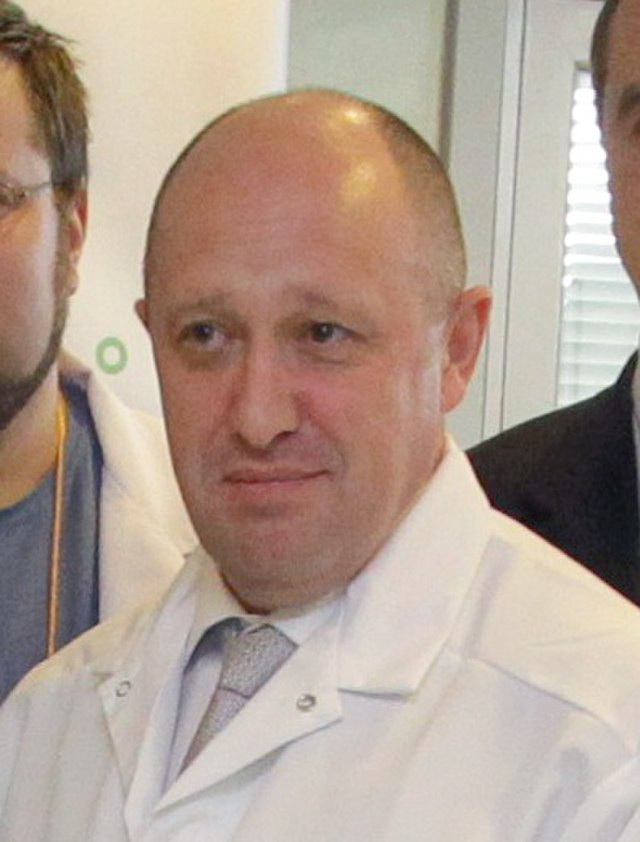Following a sudden rebellion within the Wagner Group, the world is abuzz with questions surrounding the whereabouts of its founder, Yevgeny Prigozhin. The interest lies not just in Prigozhin's personal trajectory, but it is also a significant indicator of the future direction of the Wagner Group.
According to a recent Wall Street Journal article, Prigozhin was reported missing on Sunday, the day after he had signed an agreement with Russian President Putin and had consented to go to Belarus. Prigozhin had left the Southern Military District headquarters in Rostov on Saturday night, with his destination unknown.
European intelligence officials stated that as of Sunday afternoon, the Wagner Group was still responsible for the Millerovo military airport in southern Russia. It is unclear when and how Prigozhin will proceed to Belarus, and how many of his subordinates will accompany him. There are speculations that he might use the airport to transport loyalists of Wagner to the relative safety of their mission area in Africa.
These officials added that if Prigozhin does proceed to Belarus, it's unlikely he will stay there for long.
According to the Wall Street Journal, Prigozhin has not yet spoken publicly about leaving Russia but merely agreed to the request by Belarusian President Lukashenko to stop advancing towards Moscow to prevent bloodshed.
Ever since Prigozhin announced his retreat on social media platforms on the evening of the 24th, his whereabouts have been a mystery.
His last appearance was on Saturday night, leaving Rostov in a black SUV. CNN reported that Prigozhin's press service responded to an email inquiry about his whereabouts.
In the email reply, it was noted that all questions have been forwarded to Prigozhin, who sends his greetings and will respond to the questions after appropriate communication.
Belarusian officials told CNN that they are unaware of Prigozhin's specific situation in Belarus and cannot confirm whether he has arrived in the country.
A CNBC report quoted Eurasia Group's Ian Bremmer saying that Russian mercenary leader Yevgeny Prigozhin is a "walking dead" man.
After orchestrating an armed rebellion, Yevgeny Prigozhin, the leader of Russian mercenaries, is now a "walking dead", Bremmer claimed on the "Squawk Box Asia" program on Monday.
The report stated that the Kremlin hopes all Wagner mercenaries will sign contracts with the Russian Ministry of Defense before July 1st, but Prigozhin has refused, escalating his disagreements with the Russian military leadership.
Tatiana Stanovaya, a senior researcher at the Carnegie Russia Eurasia Center, wrote on Twitter that Prigozhin's goal is to get Putin's attention and bargain for conditions to continue his activities-clear roles, security, and funding.
An article in Newsweek also highlighted the question of "Where is Prigozhin?"
The U.S. Institute for the Study of War (ISW) noted that a well-known Telegram channel affiliated with Wagner shared an AI-generated "image" of Prigozhin with a finger on his lips, suggesting "plans love silence."
ISW said that the details of the agreement described by the Kremlin and the Belarusian government are still unclear, with only various speculations and rumors.
In addition to Prigozhin's whereabouts, foreign media are also speculating on the current whereabouts of Wagner combat personnel.
Political News Network raised questions about the current state of Prigozhin's troops, reporting that on Sunday, Prigozhin's mercenaries began to withdraw from the Voronezh region in southern Russia and retreated from Rostov and Volgograd regions.
In contrast, according to French media outlet France 24, other mercenaries seem to have decided to stay loyal to the Kremlin. They have relocated to a military camp in Voronezh, which is close to Ukraine's border, and have begun their preparation for a confrontation with Prigozhin's men.
However, these reports lack confirmation from official sources. Hence, they must be taken with a grain of caution.
At present, the situation seems to be very volatile. Various factions within the Wagner Group are likely trying to regroup and strategize their next moves. Their decisions will probably depend largely on Prigozhin's next steps and his future within the organization.
In another development, Reuters reported that Moscow is taking the events very seriously and is intensifying efforts to bring the situation under control. According to an anonymous source in the Kremlin, "the Russian military is ready to respond to any aggressive actions by the Wagner Group. Our priority is to ensure the safety of the Russian people."
Speculations continue to arise regarding the repercussions of the ongoing situation. Some analysts are suggesting that this rebellion may lead to a shift in Russia's policy concerning private military companies.
Indeed, this unexpected situation has triggered global interest in the fate of the Wagner Group, its founder, and the potential implications on international security. The world watches in anticipation of Prigozhin's next move.





